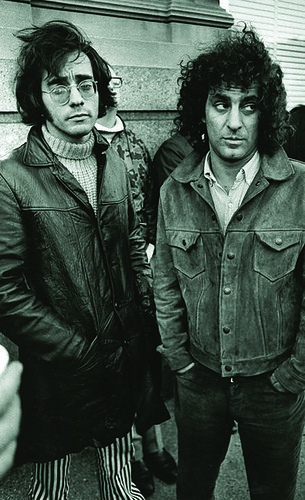The moment is almost upon us: on Tuesday, Feb. 28, the panel discussion and party marking the opening of “Blowing Minds: The East Village Other, the Rise of Underground Comix and the Alternative Press, 1965-72,” will take place at 20 Cooper Square. Before you join us for that, enjoy this penultimate weekend edition celebrating EVO. We start with Abe Peck, author of “Uncovering the Sixties: The Life and Times of the Underground Press,” telling us why the alternative paper was different from others. In short: because it colored outside the lines.
Starting in the mid-1960s, in the zone between 14th Street and Houston, First Avenue and the Alphabet blocks, a wave of longhairs began joining Ukrainians, Puerto Ricans, and pockets of poets, writers and artists. Ingestive preferences turned the grey streets Technicolor. So what if one of my roomie’s father would tell us, “I moved out of a better apartment in this neighborhood in 1924.” We were self-proclaimed life artists, merrily donating our belongings to local intruders into our happy hovels. We were home.
The East Village was where I experienced the end of grad school and the Army Reserves and the start of a community I could call my own. Where I became closer to Sergeant Pepper than to my master sergeant. Where EVO – The East Village Other – mattered.
The Village Voice was literate, and had the apartment ads. But from 1964 to 1973, hundreds of underground newspapers sprang up in every city and college town, and within high schools, the military and even prisons. They varied, but all provided a bent-mirror image of what the dailies and TV news and Time offered: herbs were fine, sex was cool, the Vietnam War sucked, racism was for losers.
Like The San Francisco Oracle (though not as third-eye-y) or my eventual underground-press homeland, the colorful Chicago Seed, EVO began, in late 1965, to chronicle an urban tribe. “We hope to become the mirror of opinion of the new citizenry of the East Village,” EVO declared in its first issue. Read more…





